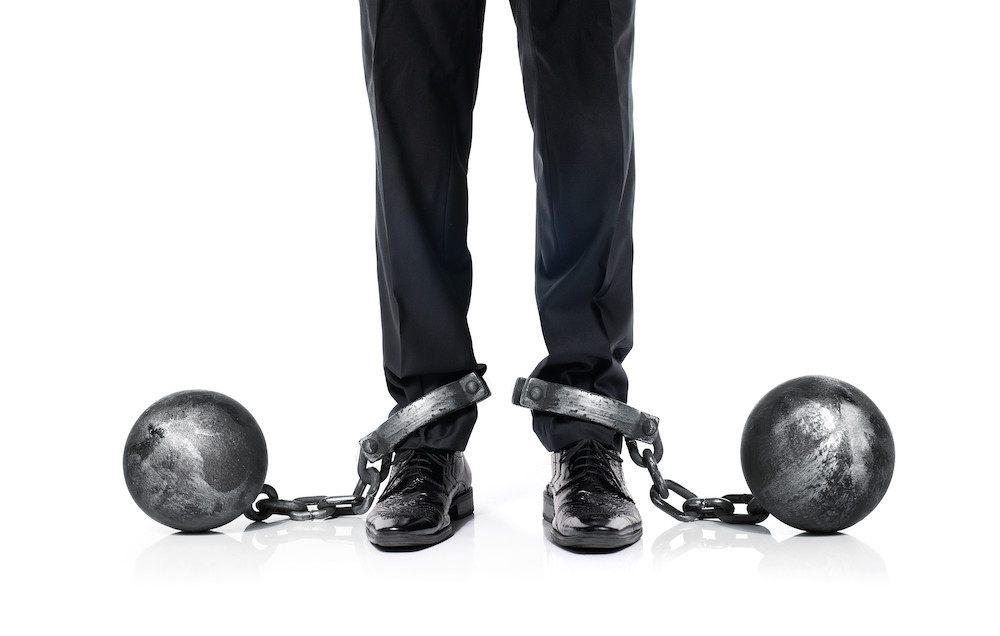Didier Bergeret, sustainability director at The Consumer Goods Forum
Last month, the Church of England promised to set up a £100-million fund, looking to make amends for its links to the international slave trade. The fund will focus “on improving opportunities for communities adversely impacted by historic slavery.” But slavery is not just a thing of the past.
Globally, 50 million people are living in modern slavery, including 28 million in forced labour, according to the latest research from the International Labour Organization. This is 10 million more than in 2016 – a spike in numbers greater than the entire population of London.
No company can put its head in the sand when it comes to this problem.
Business has a key role to play in eradicating this reality. Nearly two-thirds of forced labour (63%) occurs in the private sector, and the consumer goods industry is deeply impacted, with most cases identified in agriculture and manufacturing.
Undoubtedly, it can be challenging to take on a leadership role when it comes to excluding abuse from global supply chains. The issue is sensitive, often hidden and deeply rooted, and the complexity of global value chains doesn’t make tracing it any easier. However, forced labour is a lot closer to most companies’ operations and supply chains than they would think. Respecting workers’ rights is the first social responsibility of any business, and freedom from forced labour must be the top priority.
As the world’s largest convener of consumer-goods brands and retailers working together to drive positive change, The Consumer Goods Forum is deeply concerned about the increasing prevalence of forced labour globally in the last few years. We are committed to driving corporate action against this mounting social scourge, which is the focus of our CEO-led initiative, the Human Rights Coalition (HRC).
Nearly two-thirds of forced labour (63%) occurs in the private sector, and the consumer goods industry is deeply impacted.
Our #CloserThanYouThink campaign aims to push all companies to speak up and increase awareness on human rights. Silence is unacceptable. While legislation is providing frameworks to mandate human-rights due diligence, businesses may be hesitant, fearing the negative connotations of being associated with modern slavery and forced labour in any way. Even those taking a proactive stance against it still struggle to efficiently identify potential cases of forced labour and handle situations of victims with the highest level of protection required. Governments should acknowledge these difficulties and support business action with adequate measures to encourage transparency and provide protection and remediation for victims.
Driving awareness of the issue is integral to its eradication. When companies start being transparent and explaining what they’re doing to combat adverse human rights impacts in their supply chains, then consumers will understand the sheer scale of the problem.
Increasing multitudes of people being forced to work under the threat of violence, intimidation, debt bondage or coercion is deeply unacceptable. And the harrowing reality is that 3.3 million of the people in forced labour are children. Other vulnerable populations are disproportionately impacted, such as women and girls and migrant workers.
Companies must not only acknowledge the scale of the issue, but also ensure they offer an enabling environment for decent, fair and safe working conditions for all.
What does this mean in practice? Our members are collaborating to eliminate forced labour by working to make human-rights due diligence and responsible recruitment the norm in the industry. We urge all businesses to follow suit.
Going forward, we urgently need globally harmonized policy and legislation to ensure all workers’ rights are protected. In the meantime, corporate collaboration and co-operation will be key. The truth is that no company or industry can eradicate forced labour alone. Businesses will have to work with each other, but also with governments and non-profits – because today’s complex supply chains often span many countries, if not continents.
Collective action is required to increase the visibility of what’s happening along the way. The further down the supply chain you go, the more precarious the work tends to be, especially in sectors like agriculture or manufacturing. The risks of abuse are at their greatest on the ground.
Everyone should have the right to decent, fair and safe working conditions. Yet we are currently a long way from that scenario. Forced labour is a lot closer than you think, and no business is immune. On behalf of the members of our Human Rights Coalition, I urge all businesses to think critically about their exposure to forced labour risks and keep action on this issue top of mind in 2023.
Together, we have the power to reverse the troubling figures showing a rise in forced labour – never forgetting that there are people behind the statistics.







